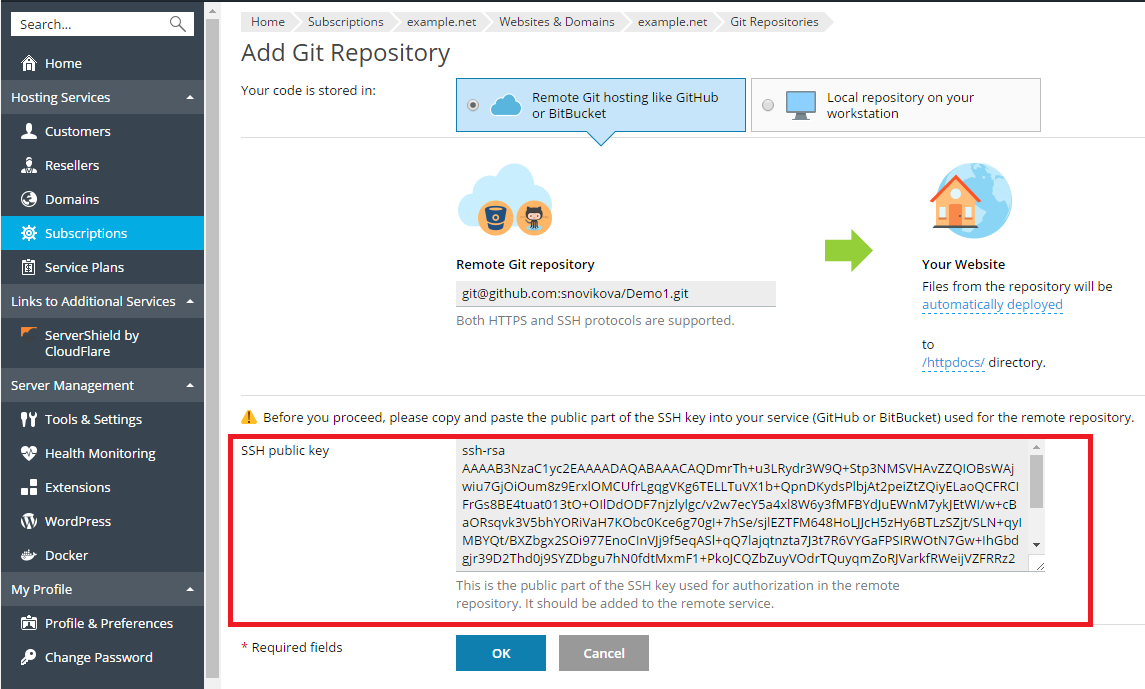You can use SSH to connect to the remote Git repository. In this case,
when adding a new repository, specify the URL of the remote repository
in the SSH format. The SSH public key field will appear and display
the SSH public key automatically generated by Plesk.

Before clicking OK on this screen, you must add the SSH key to the
settings of the remote Git repository. For details, see the
documentation for adding an SSH key for
GitHub
and
BitBucket.
